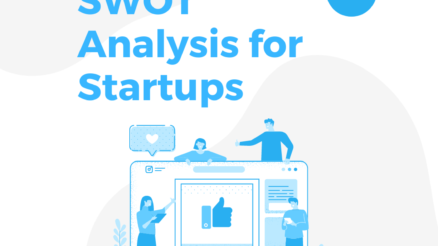How would you react if someone ask you to change your work? Do you accept it at first place? Many a times we reject change no matter how much it seems rational and inevitable.
It is always difficult to embrace.
The change managers and leaders must keep eye on reaction of employees to organizational change. The success of change initiative depends on how change managers deal with reactions and emotions of employees.
At the theoretical level, Kubler Ross Change Curve is one of most relevant framework which explains reaction of employees to organizational change. According to this model, a person goes through 5 stages of emotions – denial, anger, bargaining, depression and acceptance while experience change.
We also need to look at what change practitioners experience when they talk about change with employees. These may be different from theoretical models but these are equally important because of their practical value.
Here are some common reactions and let’s see what strategies they suggest to deal with these reactions.
Confusion and Self Consciousness
The first reaction of employees is confusion. They feel discomfort with idea of change.
Why they feel so?
The desired change may require them to change their working method or to work with different team or with different boss. How it will be happened? All these propositions create confusion in their mind.
Employees are self-conscious and they don’t know much about new way of working. These feelings produce resistance toward change which can spoil entire change initiative if not taken care of properly.
How to deal with these natural reactions?
Managers and change leaders should first acknowledge these natural reaction and feelings of employees. They should be emphatic and mindful of this situation. They should focus on explaining reasons of change and developing a common vision of change among employees.
Anger
The sense of loss triggers anger among employees. They usually tend to block their mind to perceive personal advantage of change and stick to focus only on what they might have to give up. They might have fear of losing their jobs or their status and position in organization.
How should change managers and leaders respond to anger of employees?
Change managers and leaders should be ready to receive such negative emotions. Instead of being reactive and explaining personal benefits to employees, they should give employees time to vent out their anger. After passing of this time, they should explain how benefits of desired change outweighs potential loss in it.
Disbelief
It is hard to make yourself think that you can adopt to change. Many a times employees think that they can not learn new things and they are not suited for new role and new working ways. It is natural to think like this but perpetual feeling of disbelief is problematic and affects change efforts.
What should be reaction of managers and leaders of change to this sort of disbelief?
Managers and leaders should extend maximum support to their employees to cope with feelings of disbelief. They should provide employees with opportunities of building their capacity. They should also hold one-on-one sessions with employees to encourage them to learn new skills which would be beneficial to them and organization.
Stress
It is not an easy task even employees are agreed to and start learning new skills, methods and process. Due to inconvenience, learning new work and things can be highly frustrating and employees feel stressed out and under pressure.
Although the transition period lasts for short period of time but it brings this extra stress and pressure in employees.
What should be the best approach of change leaders and manages to deal with this kind of stress and pressure in their team?
Change leaders and managers should be flexible and realistic in timelines. They should be ready to make adjustments in work plans. They should be frequently listening to their team so that they are fully aware of individual and collective challenges. And they should be proactive in finding solutions.
Excitement
Despite all hardships and problems of unknown change, some of employees feel excited and embrace challenge of change whole heartedly. They welcome change and are ready to first change themselves by quickly learning new skills and adjusting to new ways of working. Employees with this kind of personality are early beneficiaries of change and likely to get more advantage from change imitative.
How should managers and change leaders take advantage of this kind of positive feelings?
The early adopters of change should be given task to communicate the positive side of change and advantages of change among the peers. They are the champions of change who can easily influence their peers to ward off their negative feelings. This approach really works and they are more effective in this communication as compared to leaders.
Disappointment
Some employees revert back to old ways after a long struggle with adapting to change. They lose hope in change and feel disappointed as they are unable to experience positive side of change. They are not still rewarded neither they consider change beneficial for them any more.
How change managers and leaders can arrest this kind of negative feelings among team members?
Managers and leaders should be steadfast and stick to making change a part of organizational culture. There is less likelihood of disappointment among team members if change is becoming part of culture and systems are being replaced and upgraded fast. The early success of change should be also be communicated and celebrated to keep positivity intact until final goal of change is achieved.
Take Home Points
- First reaction to change initiative is confusion when nobody knows what and how to do
- Second, employees may feel anger due to perceived sense of loss.
- Third, employees may not accept change and they are in state of disbelief about their capacity to learn new skills and ways of working.
- Fourth, they feel stressed out due to all hard work and effort required to make transition from old position to desired level of change.
- Fifth, some adapt change smoothly and they feel excited about change.
- Sixth, employees may revert back to old ways of working and become completely disappointed with change.



